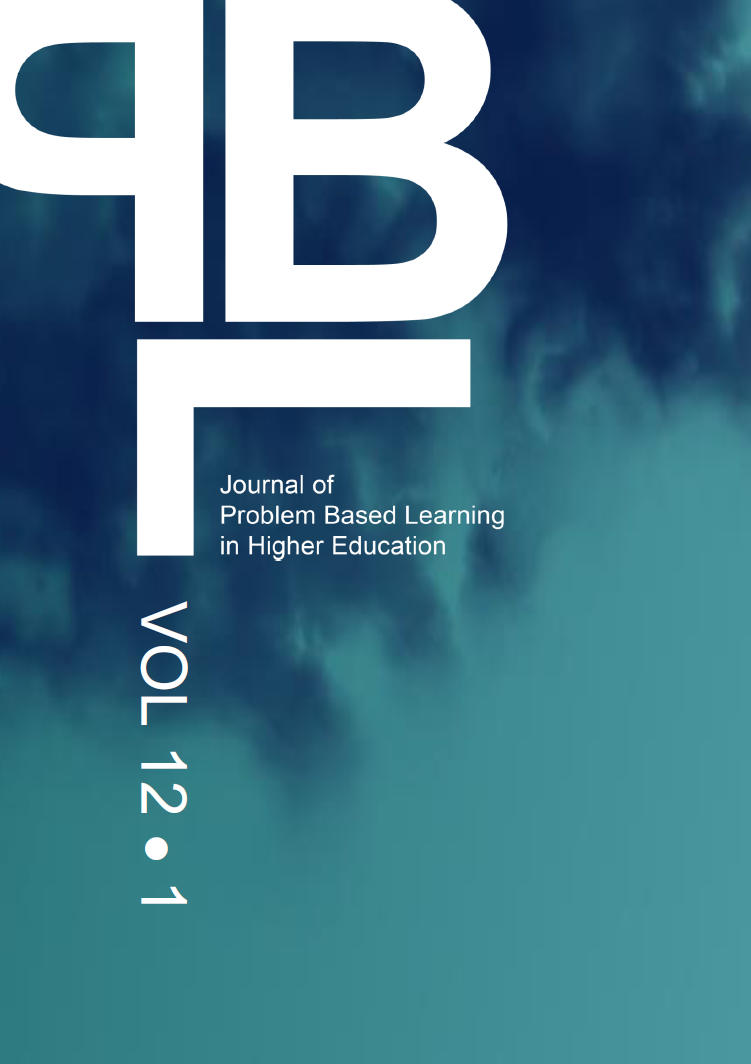Abstract
The Medical Programme at Linköping University, committed to Problem-Based Learning (PBL) and interprofessional education, confronted the necessity for pedagogical revitalization due to an upsurge in student numbers, alterations in national physician licensing criteria, and an organizational framework shift. In response to these challenges, stakeholders conducted a comprehensive systematic self-assessment to navigate a course toward a sustainable and contemporary pedagogical transformation.
The methodology employed in this assessment involved a systematic examination of scientific pedagogical literature, policy documents, educational materials, and schedules. Additionally, valuable insights were gathered through teacher and student surveys. Key findings underscore the importance of a balanced approach that grants students more time for self-study and reflection. Enhancing tools and methodologies for constructive alignment is crucial to achieve equilibrium in both theoretical and practical training settings. Moreover, establishing seamless collaborations between the university and teaching hospitals is deemed essential for faculty development and the long-term competence within both organizations.
The self-assessment underscored the critical importance of continuous evaluation in medical educational settings. The approach not only ensures the ongoing relevance of the curricula but also cultivates an environment conducive to student-centred teaching and learning. This, in turn, prepares students for lifelong learning and the diverse challenges in their future medical profession.
References
(AAMC), A. o. A. M. C. (2014). The Core Entrustable Professional Activities (EPAs) for Entering Residency. Retrieved 20 January 2024 from https://www.aamc.org/about-us/mission-areas/medical-education/cbme/core-epas
(WHO), W. H. O. (2010). Framework for action on interprofessional education & collaborative practice. Retrieved 20 January 2024 from https://www.who.int/publications/i/item/framework-for-action-on-interprofessional-education-collaborative-practice
Azer, S. A. (2009). What makes a great lecture? Use of lectures in a hybrid PBL curriculum. Kaohsiung J Med Sci, 25(3), 109-115. https://doi.org/10.1016/S1607-551X(09)70049-X
Barrows, H. S. T., R.M. (1980). Problem-Based Learning: An Approach to Medical Education. Springer Publishing Company.
Braun, V. & Clarke, V. (2006). Using thematic analysis in psychology. Qualitative Research in Psychology. 3. 77-101. https://doi.org/10.1191/1478088706qp063oa
Biggs, J. B. (1996). Enhancing teaching through constructive alignment. Higher Education, 32(3), 347–364. https://doi.org/10.1007/BF00138871
Biggs, J & Tang, C. (2011). Teaching for Quality Learning at University. McGraw-Hill and Open University Press, Maidenhead.
Boud, D. & Felletti, G. (1998). The Challenge of Problem-based Learning. Routledge.
Dahlberg, J., Dahlgren, M.A., Ekstedt, M., Hammar, M., Falk, A.L. (2020). The Linköping Journey. In D. Forman, Jones, M., Thistlethwaite, J. (eds) (Ed.), Sustainability and Interprofessional Collaboration. Palgrave Macmillan, Cham. https://doi.org/https://doi.org/10.1007/978-3-030-40281-5_11
Doolittle, P. E. (2014). Complex Constructivism: A Theoretical Model of Complexity and Cognition. International Journal of Teaching and Learning in Higher Education, 26(3), 485–498.
Frank, J. (2015). CanMEDs 2015 physician competency framework. Royal College of Physicians and Surgeons of Canada. Retrieved 20 January 2024 from https://www.royalcollege.ca/en/canmeds/canmeds-framework.html
Gummesson, C., Alm, S., Cederborg, A., Ekstedt, M., Hellman, J., Hjelmqvist, H., Hultin, M., Jood, K., Leanderson, C., Lindahl, B., Moller, R., Rosengren, B., Sjalander, A., Svensson, P. J., Sarnblad, S., & Tejera, A. (2023). Entrustable professional activities (EPAs) for undergraduate medical education - development and exploration of social validity. BMC Med Educ, 23(1), 635. https://doi.org/10.1186/s12909-023-04621-6
Hamza, D. M., Hauer, K. E., Oswald, A., van Melle, E., Ladak, Z., Zuna, I., Assefa, M. E., Pelletier, G. N., Sebastianski, M., Keto-Lambert, D., & Ross, S. (2023). Making sense of competency-based medical education (CBME) literary conversations: A BEME scoping review: BEME Guide No. 78. Med Teach, 45(8), 802-815. https://doi.org/10.1080/0142159X.2023.2168525
Kogan, J. R., Hatala, R., Hauer, K. E., & Holmboe, E. (2017). Guidelines: The do's, don'ts and don't knows of direct observation of clinical skills in medical education. Perspect Med Educ, 6(5), 286-305. https://doi.org/10.1007/s40037-017-0376-7
Kujala, J., Sachs, S., Leinonen, H., Heikkinen, A., & Laude, D. (2022). Stakeholder Engagement: Past, Present, and Future. BUSINESS & SOCIETY, 61(5), 1136–1196.
https://doi.org/10.1177/00076503211066595
van der Vleuten, C. P. M., & Schuwirth, L. W. T. (2019). Assessment in the context of problem-based learning. Adv Health Sci Educ Theory Pract, 24(5), 903-914. https://doi.org/10.1007/s10459-019-09909-1
Wahlstrom, O., Sanden, I., & Hammar, M. (1997). Multiprofessional education in the medical curriculum. Med Educ, 31(6), 425-429. https://doi.org/10.1046/j.1365-2923.1997.00669.x
Walker, C. L., & Shore, B. M. (2015). Understanding Classroom Roles in Inquiry Education: Linking Role Theory and Social Constructivism to the Concept of Role Diversification. SAGE Open, 5(4). https://doi.org/10.1177/2158244015607584

This work is licensed under a Creative Commons Attribution 4.0 International License.
Copyright (c) 2024 Linus Ohlsson, Madeleine Abrandt Dahlgren, Katarina Kågedal, Helen Setterud, Éva Tamás
